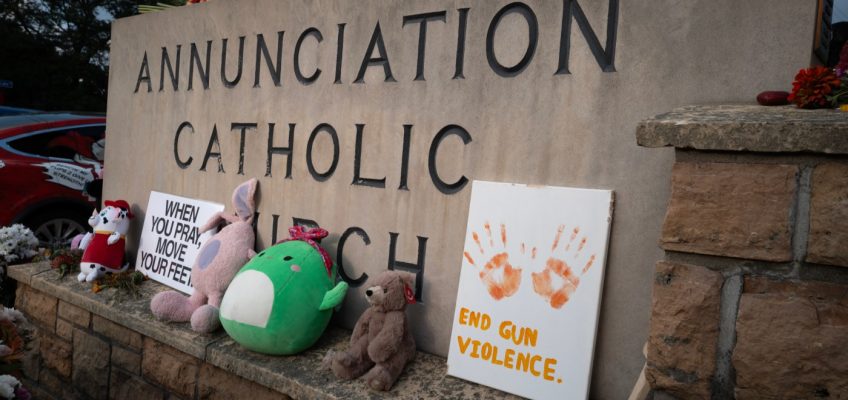In the aftermath of horrific events like last week’s school killings, communities follow a sadly predictable pattern. First comes shock, grief, and denunciation of the shooter. Then, blame begins to spread — sometimes toward institutions such as schools or first responders, sometimes toward the shooter’s family or group affiliation. Before long, the public conversation hardens into bitter conflict over gun laws. That’s where we’ve landed within a week as the governor considers a special session of the Legislature.
Advocates of more gun control call for what they frame as reasonable restrictions. But their tone, understandably charged with outrage, leaves gun-rights advocates feeling blamed for the murder of innocents. In turn, they accuse the other side of exploiting tragedy for political gain. Put bluntly, one side says, “Why are your military-style weapons more important than the lives of our children?” The response comes back, “Why are you taking advantage of tragedy to push your agenda of government control?”
The result is usually paralysis, with no meaningful solutions. And when public policy changes are made, they are often undone after later elections or overturned in the courts. Leaders move on to other issues until the next mass shooting — and the cycle repeats.
There must be a better way. It would begin with seeking to understand what is at stake for people on each side and acknowledging good intentions. We believe that those who emphasize the dangers of guns and those who emphasize safeguarding constitutional rights can find common ground on gun policy. We know this is possible, because we have seen it in our work with Braver Angels, a nonprofit devoted to bridging political divides.
In Minnesota, Braver Angels held a Common Ground workshop that brought together advocates for more restrictive gun laws and staunch defenders of Second Amendment rights. Using a structured process — ground rules, trained moderators, and a focus on three domains (values, concerns, and solutions/policies) that required unanimous support — the group surprised even themselves: They reached agreement on 28 items.
What moved them forward was not starting with legislative bill numbers, but with a recognition of the values they hold in common. Everyone in the room wanted children safe at school and families safe at home. Everyone affirmed respect for constitutional rights and responsible gun ownership. And everyone voiced the same core concerns: the rising toll of suicide and violent crime, the trauma communities carry after shootings, the need for better mental-health support, and the frustration that too much public conversation rewards outrage instead of results. When we started from these shared values and real concerns, solutions stopped being a zero-sum fight and became instead a practical search for what could work in a politically divided world.
What did that look like in practice? Participants from both sides endorsed background checks on all sales; licensing of gun ownership; stronger education and training (including more rigorous concealed-carry classes); a culture of safe storage; restricting access for people with histories of violence; increased mental-health services; investment in high-risk communities; research into Extreme Risk Protection Orders (red-flag processes) and how to implement them well, and action against undetectable or “ghost” guns. These are concrete, actionable steps — not slogans — and they were adopted unanimously by people who began the day deeply at odds.
This is a better way: Move beyond outrage, listen for what’s at stake for our neighbors, and then build durable solutions where strong agreement is possible. We can reduce the suffering caused by gun violence while protecting constitutional rights — but only if we resist the post-tragedy cycle of blame and engage one another in good faith.
William J. Doherty, Ph.D., is Emeritus Professor of Family Social Science, University of Minnesota, and co-founder of Braver Angels Jeffrey Thiemann is a retired Lutheran pastor and volunteer leader in Braver Angels.
Related Articles
Patrick Knight: For Labor Day, an ode to Minnesota workers
Real World Economics: Federal Reserve follies continue
Skywatch: So much going on this September
Your Money: 5 ways the new tax bill could impact your wallet
Real World Economics: A primer on money, banking and the Fed


Leave a Reply